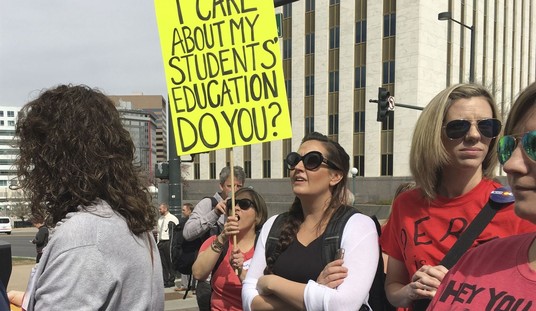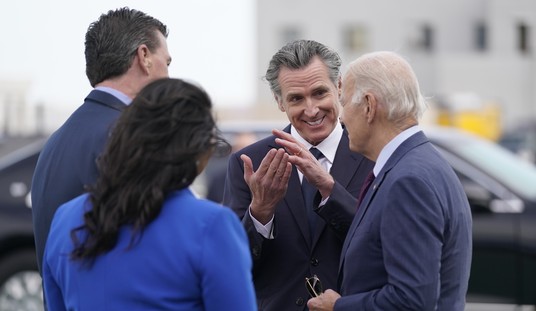Chris Cillizza made me laugh out loud last evening when I read his column, which opens with a question: “Is it possible for a president — any president — to succeed in the modern world of politics?”There is nothing new under the sun, including this question.On January 19, 2010, I wrote about the ungovernability of the American Republic. At that time, Barack Obama lamented the filibuster was making the nation ungovernable. Liberal commentators were up in arms over how ungovernable the nation was.Liberal blogger Andrew Sullivan noted at the time, “[I]f America cannot grapple with its deep and real problems after electing a new president with two majorities, then America’s problems are too great for Americans to tackle.”In this morning’s ever indefatigable Transom, Ben Domenech points out this Jonah Goldberg prediction from February 1, 2010, that is even more precise: “So here’s my additional prediction: Liberals will blame the new media climate.”The fact of the matter is, the last time liberals and traditional media sources were asking the question, they were asking it while Jimmy Carter was President. It was the penultimate moment of the Carter Presidency when, breaking out of the echo chamber, liberals in the media began to openly ponder the ungovernability of the American Republic and whether the Presidency was too big for one man.Turns out the Republic was just fine. It wasn’t that the Presidency was too big for one man. It was that the particular occupant of the office was too small for the job. When Reagan became President, the question was rendered moot.
As my friend Josh Trevino has pointed out, this question has been raised throughout the history of our Republic in one form or another. That it is being raised again shows a lack of appreciation for our history, a misunderstanding of our constitutional order, and a constrained sense of exactly what governing success looks like.The dirty little secret of our American Republic is that our ungovernability at the national level is a feature, not a bug. The founders intended it to be extremely difficult to pass legislation having just fought, bled, and seen friends die for a liberty they thought they already had only to see their government, of both a king and a Parliament, barter away their freedoms. The difficulty in “good” governance is one of the last in a series of resistors designed to protect the citizens from the “good” government intentions of those they sent to Washington. It is a powerful reminder, should we pay close attention to this difficulty and resistance, that the federal government is supposed to be a government of limited powers. The difficulty and resistance reduce and largely go away when the President, for example, deals with foreign affairs. In that area, unlike the implementation of a domestic agenda, the President has much more constitutional power because his operations are not directed at the American citizens, but at other sovereign powers. At such time as his foreign policy powers might come to restrict the rights of citizens via treaty, again we see the resistors in operation with a two-thirds vote in the Senate required to approve at treaty.In a conversation between Josh Trevino and Chris Cillizza on twitter last night, Cillizza asked , “Did the last century have the fracturing of media and social networking sites we have now?” As a matter of fact, newspapers in the eighteenth and nineteenth century were even more openly partisan than they are now. The “social networking sites” of the times were patronage positions, secret societies, and pamphleteers. There really is nothing new under the sun, including looking at our time from the conventional wisdom of our time, ignoring ages past. Compared to our founding and the subsequent decades of expansion when, by the way, the President had fewer executive powers than he does now, the Civil War, the two world wars, and the cold war, we live in relatively inconsequential times. That anyone could look at our 236th year of existence and ask if the President can succeed in the “modern world of politics” raises a better question — have we become so shallow and vain as to think our generation and our time is more consequential than that which came before us?It also begs one question more: if, in the “modern world of politics” the President of the United States cannot succeed because of the system our founders put in place to restrain the majority and prevent tyranny — a real concept to those who have lived or do live under it — what then shall we come to, a tyrant?[UPDATE:] In this morning’s Transom, which you should be subscribed to, Ben Domenech adds some thoughts of his own:
What Cilizza is really posing is a conventionally posed question about the nature of power and how you define success. President Obama has met with success in an enormous number of areas if you define it as “getting the thing he wants” – in foreign policy he’s gotten his way on every major question; in domestic policy, he had two full years of getting virtually everything he wanted (more than many presidents do); and beyond stimulus and bailouts, he succeeded where Bill Clinton failed in passing the most sweeping reform of the health care system since LBJ created Medicare and Medicaid. The problem: all that success has turned out to be pretty unpopular. Virtually every poll shows a majority of people in his own party think the crux of his health care law is unconstitutional. The real question Cilizza’s posing isn’t whether it’s possible for a president to succeed in the modern world of politics, it’s whether he can succeed having to deal with that pesky little thing: the American people. This is the classic Wilsonian approach to the executive, a belief that the president can only succeed if he operates removed from the filthy ignoramuses in the populace. It’s one of the reasons Obama lectures us so much more now that he’s had to put up with us from the White House for three and a half years: “Can’t you see all this great stuff I’ve done? It’s for your own good!” One of the most irritating aspects of the media elite and the establishment in both parties is fueled by this view. These tend to be the same folks who think third parties can be formed around the principles of Simpson-Bowles, the reforms of Norm Ornstein, and the nanny statism of Michael Bloomberg. It always comes down to the idea that politics would be a lot better off if not for elections, if politicians operated independent of those pesky voters with their fickle whims and ideologies. This strong man theory of governance is a long-running historical tradition – just not an American one. Thus: it’s time once again to dissolve the people and elect another.













Join the conversation as a VIP Member